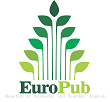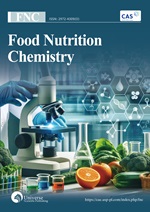Advance in CO2 capture, utilization, and storage
Print Special Issue Flyer
Submission deadline: 2024-12-31
Special Issue Editors

Microbial Sciences Institute, Yale University, New Haven, CT, 06511, USA
Interests: Microbiology; CO2 utilization; Clean energy; Microscopy
Website: Click Here

School of Engineering, The University of Edinburgh, Edinburgh EH9 3FB, United Kingdom
Interests: Carbon capture and separation processes; Reaction engineering and catalysis; Multiphase flows and transport phenomena; Energy storage
Website: Click Here

School of Power and Mechanical Engineering, Wuhan University, Wuhan 430072, China
Interests: Heterogeneous catalysis; Computational catalysis; CO2 reduction
Website: Click Here

College of Information and Electrical Engineering, China Agricultural University, Beijing 100083, China
Interests: Statistical machine learning; Agricultural energy internet; PV system integration
Website: Click Here

College of Resources and Environment, Chengdu University of Information Technology, Chengdu, Sichuan, 610225, China
Interests: Chemical looping technology; CO2 utilization; Hydrogen energy; Biomass energy
Website: Click Here

School of Mechanical Engineering, Beijing Institute of Technology, Beijing 100081, China
Interests: CO2 utilization technology; Renewable energy utilization; Transcritical CO2 heat pump
Website: Click Here

School of Energy, Power and Mechanical Engineering, North China Electric Power University, Beijing, 102206, China
Interests: CO2 capture; Multiphase flow; Membrane material
Website: Click Here

School of Energy and Environmental Engineering, University of Science and Technology Beijing, Beijing 100083, China
Interests: CO2 capture; Solar energy; Energy system
Website: Click Here
Special Issue Information
As the pressing need to address climate change intensifies, there is a growing demand for innovative decarbonization technologies in various sectors, including agriculture, maritime transport, and heavy industries such as iron, steel, and chemicals. Among these technologies, carbon capture, utilization, and storage (CCUS) methods stand out due to their potential to reduce industrial CO2 emissions by up to 50%. These methods encompass a diverse array of approaches, including Post-Combustion Capture, Pre-Combustion Capture, Oxyfuel Combustion, Chemical Absorption, Membrane Separation, Cryogenic Separation, Solid Adsorption, Algae-Based CO2 Utilization, Carbon Mineralization, Carbon-to-Chemicals, Carbon-to-Fuels, Carbon-to-Products, Geological Storage, Ocean Storage, and Mineralization, et al.
Nevertheless, the commercial feasibility and scalability of these technologies remain areas ripe for further exploration and development. Bearing this in mind, we are launching a special issue titled “Advances in CO2 Capture, Utilization, and Storage.” This special issue aims to unlock the full potential of CCUS technology. We welcome submissions that cover a wide range of topics, from mechanistic studies and innovative conceptual frameworks to practical applications of CCUS technology in industrial processes.
We invite contributions that explore various facets of CCUS technology, with a particular emphasis on Original Research, Reviews, and Opinion articles. Within this Research Topic, we are especially interested in receiving submissions that focus on:
· Carbon capture
Post-Combustion Capture; Pre-Combustion Capture; Oxyfuel Combustion; Chemical Absorption; Membrane Separation; Cryogenic Separation; Solid Adsorption
· Carbon utilization
Algae-Based CO2 Utilization; Carbon Mineralization; Carbon-to-Chemicals; Carbon-to-Fuels; Carbon-to-Products
· Carbon storage
Geological Storage; Ocean Storage; Mineralization
We eagerly await submissions that will advance our understanding and application of CCUS technology.
Dr. Wangbiao (Seven) Guo
Guest Editor
Keywords
Carbon neutrality; Decarbonization Technologies; CO2 capture, utilization and storage; Photosynthetic Cell Factories; Carbon Mineralization; Carbon-to-Chemicals; Carbon-to-Fuels; Carbon-to-Products
Published Papers
Recent progress in carbon dioxide capture technologies: A review
Xianfeng Fan, Guanchu Lu, Umair Hassan Bhatti, Zhe Wang
The continuous increase in anthropogenic CO2 emissions is widely acknowledged as one of the main reasons for global climate change. To address this issue, significant advancements have been made in developing CO2 capture and utilization technologies that offer new solutions for mitigating carbon emissions and promoting a carbon economy. In this review...
Advances in solid adsorbent materials for direct air capture of CO2
Jianfei Zheng, Xiaoping Chen, Jiliang Ma
Direct air capture (DAC) of CO2 is a carbon-negative technology that is not limited by time and geography and can contribute to the realization of the “dual-carbon” goal. In this paper, the current development of direct air capture of CO2 is reviewed, focusing on four mainstream solid adsorption DAC technologies, namely, metal-organic framework...




.jpg)
.jpg)

